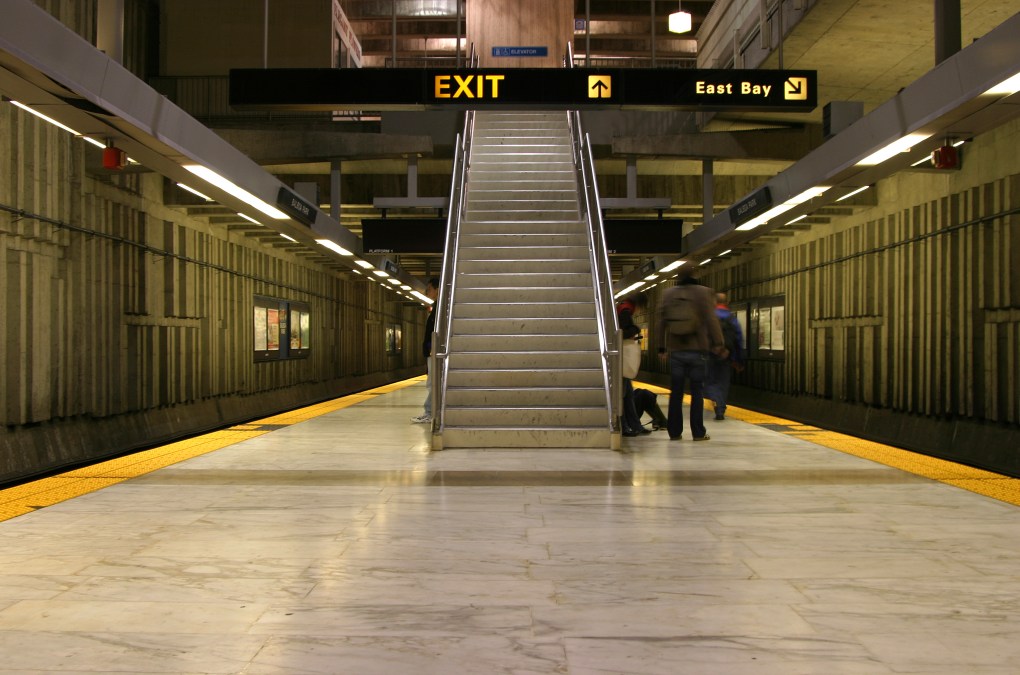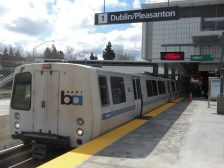Bay Area Rapid Transit passes ordinance requiring public review of surveillance technology projects

Following a contentious public meeting in August to discuss $28 million in new surveillance and security measures for the Bay Area Rapid Transit, San Francisco’s regional train system, the authority’s board of directors approved an ordinance on Thursday that will ensure the public is involved in the consideration and planning of all future surveillance proposals.
The transit authority is now considering plans to install new surveillance cameras, emergency call boxes, software video analytics systems and other technologies following a recent uptick in violence on the trains. The new ordinance requires public notice and debate before any such systems can be purchased or installed.
The American Civil Liberties Union, which has been calling for such legislation locally for the past two years, claims public scrutiny of surveillance systems is important because it ensures government does not violate the public’s Constitutional rights by collecting and using personal information needlessly or without permission.
“The suspicionless monitoring of riders chills the very freedom of movement at the core of BART’s service,” reads a letter from ACLU Attorney Matt Cagle to the BART Board of Directors ahead of the ordinance’s passage. ” … The community needs assurance that BART will not operate technologies that needlessly track and police riders or infringe their First Amendment right to protest, associate, or speak freely within the system.”
Other local groups joined the ACLU in praising BART for passing the oversight ordinance, including Oakland Privacy and the San Francisco branch of the Council on American-Islamic Relations, or CAIR.
“Today’s decision will help BART staff and law enforcement officials begin to earn back the community’s trust by asking us for feedback about how they navigate the city,” said CAIR SF’s Sameena Usman.
BART board members and the audience at the meeting were given a reminder of the trust that had been broken for some when instead of comments about the ordinance, the topic of the day, the first 30 minutes of the meeting were dominated by excoriations from the mother and other family members, friends and advocates of Sahleem Tindle, a 28-year-old man who was fatally shot by a BART police officer in January while he was fighting on the ground with another man.
The surveillance measures have been proposed as a means both to deter and detect violence on the trains and at train stations and their surrounding areas, particularly in light of the death of Nia Wilson, an 18-year-old woman who was fatally stabbed by a transient man in July.
At the BART board’s initial meeting in August to discuss its wide array of security proposals, board members gave the authority the nod to continue planning a $15 million expansion and upgrade to its existing network of almost 5,000 video cameras, and a $5 million project to install emergency call boxes. Other projects, including a video analytics software project, which the authority has emphasized would not include the use of facial recognition capabilities, were shelved until more public input could be gathered.
In late August, the Federal Emergency Management Agency granted BART $6.8 million to assist with security upgrades, which include heightened police patrols, and camera and radio interoperability upgrades.
While some in attendance at public meetings have categorically opposed any new surveillance measures, the ACLU and its allies have called for public discourse that would allow new technologies to be deployed with the goal of improving public safety while safeguarding rider privacy and the public’s trust in local government and law enforcement.
“This is a victory for every person who rides BART,” Cagle said in a press statement. “This surveillance ordinance holds BART accountable to the community it serves and gives riders a seat at the table. People should be free to move around the Bay Area without being secretly policed by dangerous surveillance technology. We commend the willingness of BART leadership to find common ground, and look forward to working together to build a city we can all feel safe living in.”






